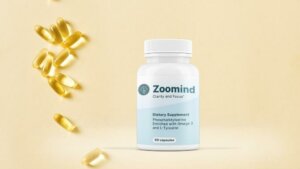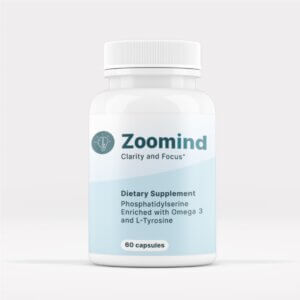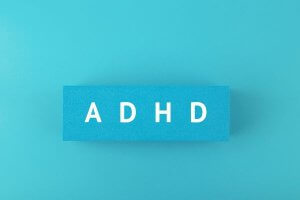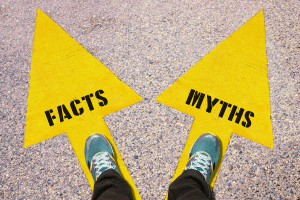
ADHD is pretty common. According to a 2022 national survey of parents, approximately 7 million children in the US, or 11.4% of those aged 3–17, have been diagnosed with ADHD at some point. Around 32% of children undergoing treatment for ADHD receive a combination of medication and behavioral therapy, while 30% rely solely on medication, a big jump compared to just a couple of decades earlier.
ADHD is a lifelong condition, but with the right support, it’s absolutely manageable. For many kids, ADHD medication like psychostimulants can make a huge difference, with around 75-80% seeing their symptoms improve significantly. As kids grow into their teenage years, some may notice their symptoms ease up, and for a lucky few, they might even fade completely. However, for most kids, ADHD is something they’ll continue to work through into their teen years and even adulthood.
Treating ADHD in children often involves a combination of different approaches when it comes to medications, like stimulants vs non-stimulants. Parents might also explore other options to support their child, such as dietary supplements, social skills training, or cognitive behavioral therapy (CBT), which can work on their own or alongside medication to help manage symptoms.
The most frequently prescribed ADHD medications
When it comes to ADHD medications for both children and adults, there are two main types doctors tend to prescribe. The most common are stimulants. These are often chosen because they work quickly, though doctors also consider potential side effects. The other type is non-stimulant medications. These medications work differently from the stimulants and are another option, depending on what’s best for the individual.
Medications like Focalin, Ritalin, Adderall, and Vyvanse, which are based on either methylphenidate or amphetamines, have been shown to help manage ADHD symptoms. There are also other options, like Strattera, Tenex, Kapvay, and Qelbree, which work differently by targeting specific brain chemicals.
What are the side effects of these medications?
ADHD medications that act as stimulants can sometimes cause physical side effects like headaches, nausea, stomach pain, or even vomiting. Parents might also notice changes in behavior, like a reduced appetite, trouble sleeping, increased anxiety, dizziness, or restlessness. In some cases, kids might experience weight loss, loss of appetite, or itchy skin.
Non-stimulant medications, on the other hand, might make children with ADHD feel more tired, drowsy, or even a bit low on energy because of their calming effects.
Many children with ADHD continue to feel its effects well into their teenage years, making it something families often manage for the long term. While current medications can be helpful, there’s still a lot to learn about how they might affect brain development over time.
Looking at the main types of medications being prescribed today can help give a better idea of what long-term effects might show up down the road.
Amphetamines

People who use amphetamines for a long time are at a higher risk of accidental overdose, which can be deadly. Over time, frequent use can lead to dependence, and addiction can sneak up before they realize it. Since everyone’s body is different, especially across different ages, it’s hard to predict how much or how long it takes for someone to develop an addiction. It’s a reminder of just how important it is to approach these substances with caution.
Methylphenidates
There hasn’t been much research on the long-term effects of taking methylphenidate as a medicine. Some have noticed that it might slow down overall growth, possibly because one type of medication with methylphenidate can disrupt sleep. And since good sleep is so important for growth, this could be a factor.
The stimulant effects of this drug come with some risks, similar to those seen with amphetamines. For example, medications like Ritalin, which are based on methylphenidates, have become known as “study drugs” among students. While they might help with focus, they can also lead to side effects like insomnia and restlessness, disrupting healthy sleep patterns.
Is there a treatment for ADHD without these possible side effects?
Most people taking current medications see real improvements, with over three-quarters noticing a difference. However, the side effect list can be pretty intimidating, and many parents seek alternatives that don’t come with such risks. The good news is that there are indeed non-medication-based treatments for ADHD, and they may be just as effective.

FAQs
Do ADHD medications affect the brain long-term?
Researchers do know that over time the brain can adapt to the medication, so that your child may eventually need a higher dose to get the same effect. More research is needed on the long term effects of stimulant medication on the developing brain as the informagtion is conflicting, with some sources saying it can improve the brain and some suggesting it may lead to harm.
Does ADHD medication affect lifespan?
Studies show that these medications don’t shorten life expectancy when used correctly. However, leaving ADHD untreated can lead to more accidents, drug use, and mental health problems, which can all lower life expectancy.
What organs are affected by stimulants?
Stimulants are substances that speed up your heart, breathing, and brain activity. Some work on just one part of the body, like the heart, lungs, brain, or nervous system.
Does ADHD med stunt growth?
Research shows that ADHD medications, which can reduce a child’s appetite, may impact their physical growth. Studies from the past decade reveal that children who take these medications for just three years can be about an inch shorter and six pounds lighter than their peers.
Can you manage ADHD without medication?
ADHD can be managed without medication by building good sleep routines, eating a balanced diet, staying active, and finding new ways to complete tasks. Different strategies work for different people, so it’s a good idea to try one thing at a time to see what works best.
How do I know if my ADHD medication needs adjusting?
If you’ve been taking your ADHD medication regularly for a few weeks and don’t notice improvements in focus, reduced impulsivity, or other symptoms, it might be a sign that your medication needs to be adjusted.








